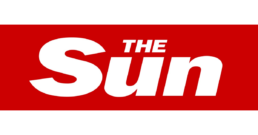UK inflation more than doubles in April – expect further rises, investors warned
The latest CPI data reveals that inflation rose significantly between March and April to the highest point since the start of the COVID-19 pandemic.
The World In A Week - Shuffling of the Cards
Last week local elections took place across the UK that saw the Conservatives extend their dominance over Labour, making a net gain of twelve councils with Labour losing control of eight. Labour’s poor local election performance prompted Sir Keir Starmer to reshuffle his cabinet, with Anneliese Dodds being replaced by Rachel Reeves as Shadow Chancellor. However, there was more promising news for Labour as Sadiq Khan was successfully re-elected as London Mayor for another term.
Elsewhere, the Scottish National Party gained another seat but missed out on a total majority with Nicola Sturgeon stating that they will push forward with legislation to propose a second Scottish independence referendum, which is likely to take place in 2022 at the very earliest. Attention now turns towards Boris Johnson who is expected to set out several new bills aimed to support businesses post-Brexit, with the creation of eight new freeports in England and a bill set to boost housebuilding in northern regions.
With the UK demonstrating that the strong vaccine rollout can curb the transmission rate of the virus, with just over 17.5 million people having now been fully inoculated and hospital admission rates falling significantly, just over 51% of the UK has now received their first dose, which ranks second globally. Off the back of this, Boris Johnson is also set to approve the next stage of the reopening of the UK economy, which includes the reopening of most businesses, including pubs and restaurants serving indoors. Indoor sports and cinemas will also be allowed to reopen, as well as the ability to allow spectators to attend major sporting events.
Any opinions stated are honestly held but are not guaranteed and should not be relied upon.
The information contained in this document is not to be regarded as an offer to buy or sell, or the solicitation of any offer to buy or sell, any investments or products.
The content of this document is for information only. It is advisable that you discuss your personal financial circumstances with a financial adviser before undertaking any investments.
All the data contained in the communication is believed to be reliable but may be inaccurate or incomplete. Unless otherwise specified all information is produced as of 10th May 2021.
© 2021 Beaufort Investment. All rights reserved.
Finding the right balance
How does the number of holdings affect costs, volatility and performance. The NMA gets the measure of six balanced portfolios including Beaufort Investment's Active 05 S3 Portfolio.
The World In A Week - High and Dry?
It was a busy week that saw the US Federal Reserve meet to discuss monetary policy. The expectation was for a steady hand on the tiller, and they did not disappoint. Monetary policy is to remain static, with interest rates at historically low levels and the quantitative easing programme at historically high levels.
It was stressed by Chair Jerome Powell that this was not the time to be talking about scaling back bond buying. However, there was an upgrade to the outlook for the US economy. Continued progress on vaccinations, improving indicators of economic activity, and a strengthening in employment, all led the Federal Reserve to update their rhetoric. Single words matter and in March they expressed pandemic risks as “considerable”, and this word was removed in their recent commentary.
To underline the outlook for the US, the country’s official economic data was released showing an annualised growth rate of 6.4% for the first three months of 2021. Growth data typically takes a month to be collated and calculated, so it is always busy the month after the end of the quarter. The continuing level of stimulus and easing of lockdown restrictions have given a boost to the recovery. Despite the speedy upturn, President Joe Biden continues to put pressure on Congress to approve his expanding agenda.
Having now passed 100 days as President, the volume of stimulus that he wants to approve continues to rise. In March, the $1.9 trillion American Rescue Act was passed, now we have the $2.3 trillion American Jobs Plan, which has been designed to upgrade the US’s failing infrastructure, and the $1.8 trillion American Families Plan, which looks to improve workers’ benefits.
The obvious risk, with such stimulative monetary and fiscal policies in place, is that the US economy could overheat. This does increase the likelihood of a spike to inflation levels, albeit short-lived, and would demand an appropriate policy response. This is something we are keeping a close eye on.
On the other side of the Atlantic, the Eurozone slid into a double-dip recession. The output in the first three months of 2021 dropped, as the weight of continued lockdown measures and a stuttering vaccine programme left them lagging behind other developed economies. The -0.6% fall for the first quarter followed a -0.7% drop for the last quarter of 2020 creating a technical recession for the Eurozone. This backdrop demonstrates why we are currently underweight in European equities.
In the UK, consumers are embracing the reduced lockdown measures, particularly at pubs, which has seen craft and premium beers being added to the growing list of items that are hitting supply constraints. Do not underestimate the power of pent-up demand, supported by substantial savings, that we have witnessed during this lockdown.
Any opinions stated are honestly held but are not guaranteed and should not be relied upon.
The information contained in this document is not to be regarded as an offer to buy or sell, or the solicitation of any offer to buy or sell, any investments or products.
The content of this document is for information only. It is advisable that you discuss your personal financial circumstances with a financial adviser before undertaking any investments.
All the data contained in the communication is believed to be reliable but may be inaccurate or incomplete. Unless otherwise specified all information is produced as of 4th May 2021.
© 2021 Beaufort Investment. All rights reserved.
The World In A Week - Biden’s Decisive Decade
It was a volatile week for equities, but one which pretty much came out flat for the overall MSCI Global Equity Index, though the UK equity market, FTSE All Share, pulled back -0.98%. On Friday US markets bounced back, after sliding on Thursday, on a report that Biden was looking to raise Capital Gains Tax. Stocks whipsawed this week with rising coronavirus cases, mixed economic data and corporate earnings.
The week ended with US President Joe Biden’s climate change summit. The event, meant to demonstrate America’s return to the stage as a climate leader, garnered only modest pledges from attendees despite Biden’s promise of a monumental 50% cut in US emissions, declaring “this is the decisive decade” for tackling climate change. The important point appears to be everyone pulling together. Biden’s administration is focused on commitments from banks and private businesses to help fight the accelerating climate crisis. Four of the biggest US banks on Wall Street – Morgan Stanley, Bank of America, JP Morgan & Citigroup, have pledged $6 trillion in sustainable finance. The billions of dollars they will save in taxes is probably one of the reasons for such grand generosity.
In the developed world the infection rate from the pandemic continues to fall steadily, as the vaccine continues to be rolled out. Johnson & Johnson’s vaccine was finally put back into action in the US. However, in India, the pandemic continues to spiral out of control. On Friday, the nation reported 332,730 new infections, yet another global record. Hospitals are overwhelmed and turning patients away, with the country turning to mass cremations for the thousands dying each day. Incredibly tragic news and one that says we are not out of the woods yet.
Last week also proved a volatile week for Bitcoin, its worst week in months. The notoriously volatile cryptocurrency hit a high of $64,870 on 14th April, but a fresh bout of selling on Friday drove it down nearly -8% to $47,525. It keeps getting worse for the $35 billion Grayscale Bitcoin Trust, which is trading at a significant discount to the value of the underlying digital assets it owns. It has lost nearly a fifth of Its value since last Friday, and Wall Street analysts are warning of further pain to follow. An area of the market with lots of focus and hype, but an area we have left well alone.
Any opinions stated are honestly held but are not guaranteed and should not be relied upon.
The information contained in this document is not to be regarded as an offer to buy or sell, or the solicitation of any offer to buy or sell, any investments or products.
The content of this document is for information only. It is advisable that you discuss your personal financial circumstances with a financial adviser before undertaking any investments.
All the data contained in the communication is believed to be reliable but may be inaccurate or incomplete. Unless otherwise specified all information is produced as of 26th April 2021.
© 2021 Beaufort Investment. All rights reserved.
“For the moment, inflation looks contained”: UK CPI rises by 0.7%
Transport and clothing lead the rise in CPI inflation as the UK started to open up post-lockdown.
Unemployment hits 813,000 Brits since start of pandemic with 56,000 losing jobs last month
It means the total number of workers who don't have a job now stands at 1.67million, reports the Office for National Statistics (ONS).
The World In A Week - The Beer Garden Boom
Global markets continued chugging along last week, with the MSCI All Country Index of global stocks returning +0.8% in GBP. A notable leader was the UK Equity market, which returned +1.5% as measured by the FTSE All Share Index. We continue to believe that the UK market could have significant room to run, having been neglected by global investors for many years. The re-opening of the UK economy continues apace, as borne out in Google’s mobility data. The less scientific measure of how difficult it is to book a pub garden right now, also supports this hypothesis.
Another interesting dataset we have observed is the excess savings accumulated by households during the pandemic. UK households are second only to the US in foregone consumption, at an estimated 10% of GDP. This compares to 6% for the world as a whole, 6.2% in Germany and 5.5% in France. As these savings are spent in the coming months, we expect this to give significant support to domestically-focused UK stocks. This also supports our view that Sterling Fixed Income remains unattractive, as a revival in economic growth is likely to lead to higher interest rates which are a negative for bonds.
Other global markets are a very mixed bag in terms of how attractive or unattractive they are to us right now. We have written many times in the past that elements of the US Equity market exhibit stretched valuations and heroic growth assumptions, although we have recently been adding small-cap value exposure which should benefit from the strong rebound in the world’s largest economy. Certain Fixed Income markets are also once again looking as if they are “priced for perfection” with the extra compensation paid to investors for holding investment grade and high yield corporate debt now roughly back to all-time lows. We think selectivity and remaining active in Fixed Income markets will be critical to client outcomes from this point.
Any opinions stated are honestly held but are not guaranteed and should not be relied upon.
The information contained in this document is not to be regarded as an offer to buy or sell, or the solicitation of any offer to buy or sell, any investments or products.
The content of this document is for information only. It is advisable that you discuss your personal financial circumstances with a financial adviser before undertaking any investments.
All the data contained in the communication is believed to be reliable but may be inaccurate or incomplete. Unless otherwise specified all information is produced as of Monday, 19th April 2021.
© 2021 Beaufort Investment. All rights reserved.
Investing in future winners
Equity markets have rebounded strongly from the falls of February and March 2020, to deliver significant outperformance to investors. Our CIO, Shane Balkham was quoted in this article.







The World In A Week - Inflated Expectations Return to Earth
Last week was a negative one for markets, as the MSCI All Country World Index of global stocks returned -2.3% in GBP terms.
The stand-out macroeconomic event of the week was the release of US inflation data on Wednesday, which revealed that prices were rising faster than market participants had anticipated. The increase in consumer price inflation came to +4.2% over the 12 months to April, the highest reading since 2008. This has been spurred on by monetary stimulus in the form of asset purchases from the Federal Reserve, the large fiscal stimulus planned by the Biden administration; as well as significant supply bottlenecks experienced by many raw material producers. This has seen the price of commodities such as lumber, copper, and corn rocket higher, albeit from quite a low base.
Increased inflation expectations, coupled with the higher interest rates which central banks may feel they now need to implement sooner, led to quite a substantial sell-off in the very frothy end of the US Tech sector (particularly the unprofitable parts, of which there are many). The NASDAQ Index of US Tech names was down -3.1% for the week, while retail favourites packed with loss-making “moonshot” stocks such as the ARK Disruptive Innovation ETF and the Baillie Gifford Global Discovery Fund lost -6.0% and -6.9% respectively. We continue to find the prices of assets in this end of the market to be disconnected from reality and increasingly unattractive in a potential rising inflation and interest rate environment. What was also amusing to observe, in a week where inflation exceeded expectations, was a -18.3% fall in the price of Bitcoin. The legion of online zealots touting the cryptocurrency as an inflation hedge may need to review their investment hypothesis.
Segments of the market, which we have been more constructive on, performed relatively better over the week. Global value stocks outperformed global growth names by +1.9%, while the value-orientated UK Equity market (which we are overweight) was the best performing global equity asset class for the week.
Any opinions stated are honestly held but are not guaranteed and should not be relied upon.
The information contained in this document is not to be regarded as an offer to buy or sell, or the solicitation of any offer to buy or sell, any investments or products.
The content of this document is for information only. It is advisable that you discuss your personal financial circumstances with a financial adviser before undertaking any investments.
All the data contained in the communication is believed to be reliable but may be inaccurate or incomplete. Unless otherwise specified all information is produced as of 17th May 2021.